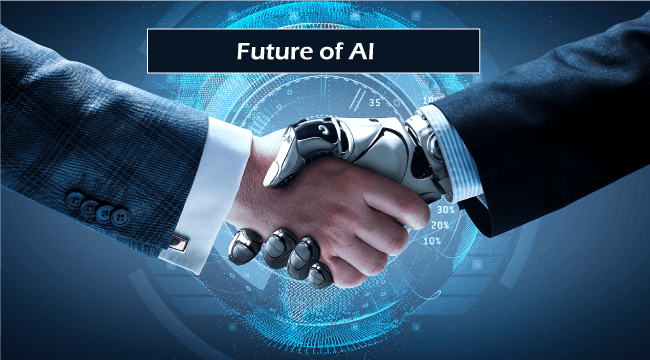The Future of Artificial Intelligence

Artificial Intelligence (AI) has been one of the most transformative technologies of the 21st century. From self-driving cars to personalized recommendations, AI is reshaping various industries and our daily lives. In this post, we'll explore the future of AI and the potential advancements we can expect in the coming years.
Advancements in AI Technology
The field of AI is rapidly evolving, with significant advancements in machine learning, natural language processing, and computer vision. These technologies are becoming more sophisticated, enabling AI systems to perform tasks that were once thought to be impossible.
1. Improved Machine Learning Algorithms
Machine learning algorithms are the backbone of AI systems. Future advancements will focus on developing more efficient and accurate algorithms that can learn from smaller datasets and adapt to new information quickly. This will enable AI systems to make better predictions and decisions.
2. Enhanced Natural Language Processing
Natural Language Processing (NLP) allows AI systems to understand and generate human language. Future improvements in NLP will lead to more natural and intuitive interactions between humans and machines. We can expect AI assistants to become more conversational and capable of understanding complex queries.
3. Advanced Computer Vision
Computer vision enables AI systems to interpret and understand visual information. Future advancements will focus on improving the accuracy and speed of image and video analysis. This will have significant implications for industries such as healthcare, where AI can assist in diagnosing diseases from medical images.
Applications of AI in Various Industries
AI is already making a significant impact across various industries, and its influence is expected to grow in the future. Here are some key areas where AI will play a crucial role:
1. Healthcare
AI has the potential to revolutionize healthcare by improving diagnostics, predicting patient outcomes, and personalizing treatment plans. AI-driven tools can analyze vast amounts of medical data to identify patterns and provide insights that can lead to better patient care.
2. Autonomous Vehicles
Self-driving cars are one of the most anticipated applications of AI. Advances in AI technology will enhance the safety and reliability of autonomous vehicles, bringing us closer to a future where self-driving cars are a common sight on our roads.
3. Finance
In the finance industry, AI is being used for fraud detection, algorithmic trading, and risk management. Future developments will focus on creating more robust and transparent AI systems that can make complex financial decisions with greater accuracy.
4. Education
AI has the potential to transform education by providing personalized learning experiences. AI-driven platforms can analyze students' performance and tailor educational content to their individual needs, helping them learn more effectively.
Ethical Considerations and Challenges
As AI continues to advance, it is essential to address the ethical considerations and challenges associated with its development and deployment. Issues such as bias in AI algorithms, data privacy, and the impact of AI on employment must be carefully considered.
1. Addressing Bias in AI
AI systems can inadvertently perpetuate biases present in the data they are trained on. Future efforts will focus on developing techniques to identify and mitigate bias in AI algorithms to ensure fair and equitable outcomes.
2. Ensuring Data Privacy
The widespread use of AI involves the collection and analysis of vast amounts of data. Protecting individuals' data privacy will be a critical challenge, and robust regulations and practices will be needed to safeguard sensitive information.
3. Managing the Impact on Employment
AI has the potential to automate many tasks, leading to concerns about job displacement. To address this, it will be important to invest in reskilling and upskilling programs to help workers adapt to the changing job landscape.
Conclusion
The future of AI holds immense potential for innovation and transformation across various sectors. By addressing the ethical considerations and challenges associated with AI, we can ensure that this powerful technology is used for the greater good. As we continue to explore the possibilities of AI, it is crucial to remain vigilant and proactive in shaping a future where AI benefits everyone.